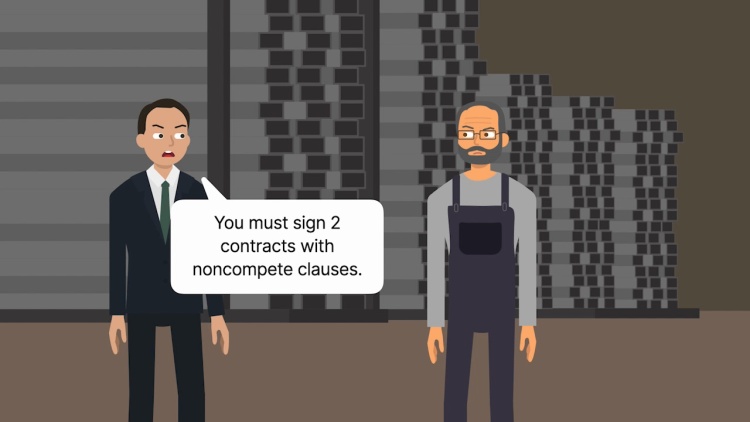Rem Metals Corp. v. Logan
Oregon Supreme Court
565 P.2d 1080 (1977)
- Written by Robert Cane, JD
Facts
Rem Metals Corporation (Rem) (plaintiff) employed Forrest Logan (defendant) as a welder. Rem produced precision titanium casings, which it sold to Pratt & Whitney Aircraft Division. Only three companies produced such cases: Rem, Precision Castparts Corporation (Precision), and a smaller company in Michigan. Rem employed only two or three certified welders, including Logan. Logan had learned to weld electrodes of titanium at a previous employer. When Logan joined Rem, he signed two employment contracts that contained noncompetition clauses providing that he would not engage in competition with Rem anywhere in the United States for the period of one year after his employment ended. When Logan started in the welding department at Rem, he earned his certification in less than two weeks. The training did not disclose any trade secrets regarding the welding process. Logan did not interact with customers. At some point, Logan asked for a wage increase, but Rem refused. Logan quit Rem and began working for Precision Castparts. Rem lost out on $25,000 worth of business in the two weeks following Logan’s departure due to a lack of adequate welders. However, Rem successfully trained two welders to Pratt & Whitney’s standards shortly after Logan left. Rem sued Logan to enforce the noncompetition provisions of Logan’s employment contracts. The lower court enjoined Logan from engaging in competition with Rem for six months. Logan appealed.
Rule of Law
Issue
Holding and Reasoning (Tongue, J.)
What to do next…
Here's why 907,000 law students have relied on our case briefs:
- Written by law professors and practitioners, not other law students. 47,100 briefs, keyed to 996 casebooks. Top-notch customer support.
- The right amount of information, includes the facts, issues, rule of law, holding and reasoning, and any concurrences and dissents.
- Access in your classes, works on your mobile and tablet. Massive library of related video lessons and high quality multiple-choice questions.
- Easy to use, uniform format for every case brief. Written in plain English, not in legalese. Our briefs summarize and simplify; they don’t just repeat the court’s language.





